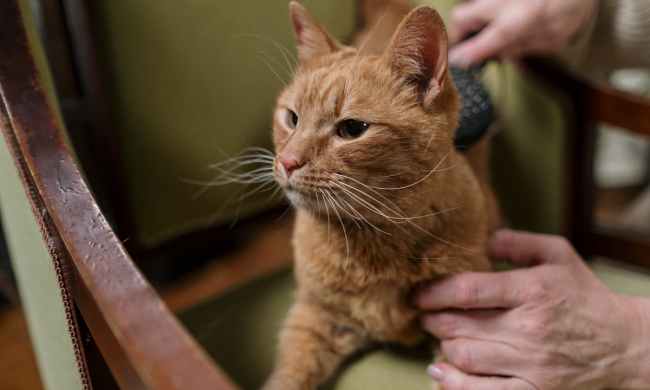Even though hissing is totally normal feline behavior, that doesn’t mean it isn’t uncomfortable when it happens. There are many reasons your cat or any other cat may hiss at you, but not all of them are death alarms.
Cats have coping mechanisms for living with humans. In some cases, their communication may seem threatening. Still, it’s helpful to know what might be behind that behavior so that you can deal with a hissing cat properly. Learn how to modify your behavior or the circumstances and restore your peaceful household.
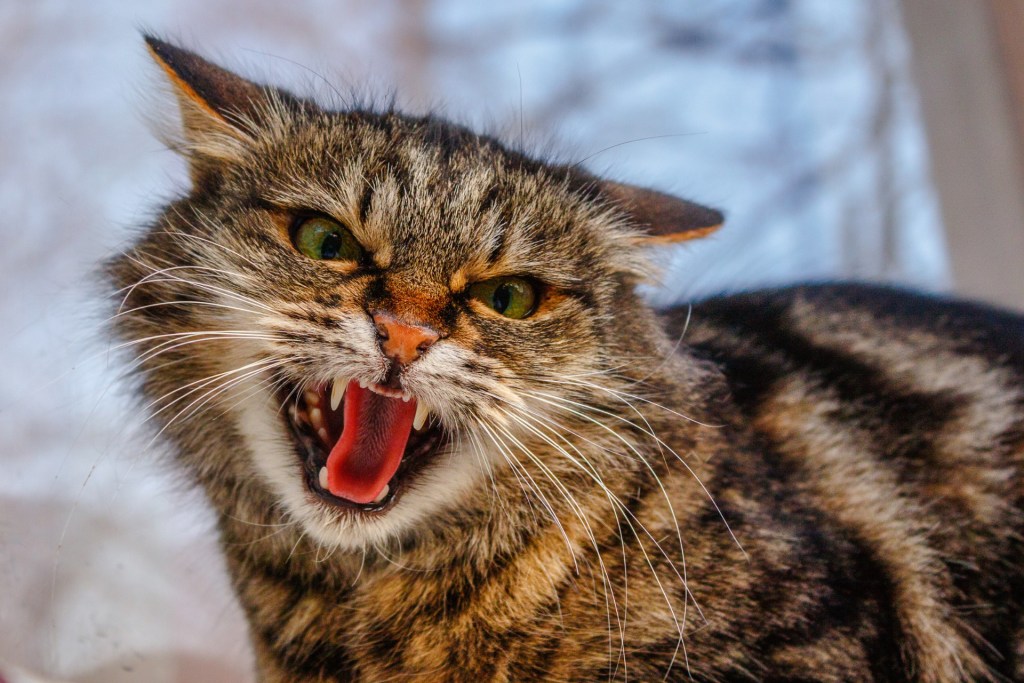
What is a hiss?
Hissing is an innate behavior in all cats, including large wild cats such as lions and tigers. When cats force air through their tongue while it is arched upward toward the center of the mouth, they create a hissing sound. As a cat hisses, they release a puff of air. While hissing, a cat will generally arch its body, pull back its lips, and flatten its ears against its head.
A cat’s fur stands up as another reflexive response to whatever caused the cat to hiss. You might get nervous when your cat hisses — and you’re meant to. Hissing is a defense mechanism. It serves as a warning, letting you know that the cat may lash out if you don’t stop what you’re doing.
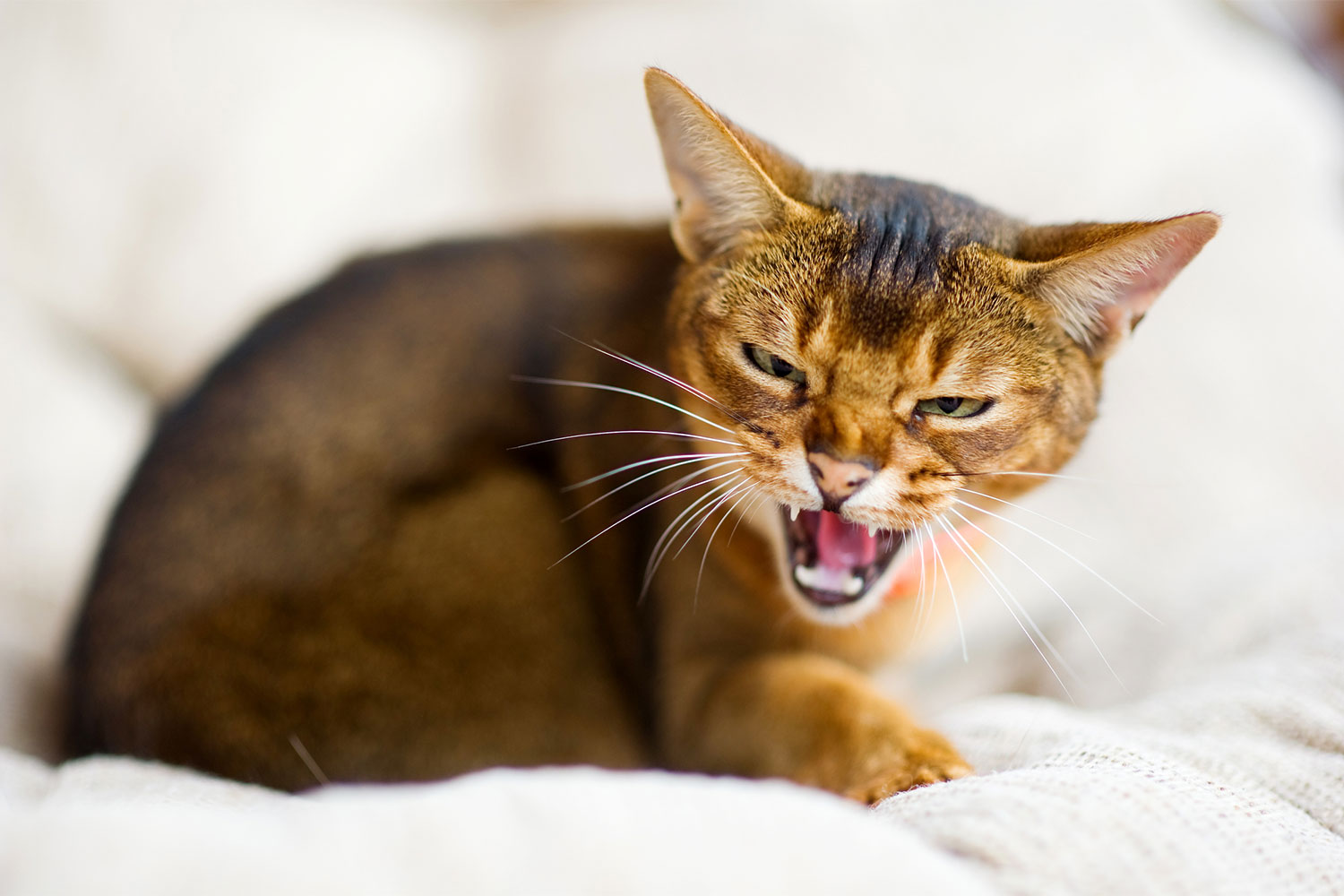
What causes cats to hiss?
Hissing is a means of expression and communication. Here are six common reasons why cats hiss.
1. They’re giving a preemptive warning
Cats don’t want to get into fights out in the wild because an injury can often mean death. If a cat in your neighborhood or your household hisses, that can be a warning to avoid conflict.
If it’s your cat, you may be doing something threatening. Your cat might be tired or feeling a little more territorial than usual. For example, if you’ve recently rearranged the furniture, your cat may be missing its familiar spots. You could also be handling the cat a bit too roughly. The hissing may not be an aggressive move but merely a way to communicate. Allow your cat to escape and have some time to cool off.
If it’s a cat in your neighborhood, you should be fine if you move along without approaching. Cats rarely attack humans without absolute necessity.
2. They’re in pain
Animals in the wild try to prevent being taken advantage of by hiding any vulnerability. Cats won’t immediately show discomfort and pain unless something is really wrong. Hissing could be a sign that your cat is in pain.
Cats will hiss because they’re trying to minimize contact with humans (especially children) and other pets. If you notice your cat spending more time alone or sneaking off to places you can’t quite reach, those hisses could also be part of their plan — basically saying, “Stay away from me!”
3. They’re redirecting aggression
If your cat sees another animal, especially another cat, and feels a bit territorial, you may be on the receiving end of a hiss. This accidental behavior may transfer to you if the cat is totally focused on that strange cat outside and you happen to walk by.
This can happen for other reasons, too. Got two cats and one is trying to take the other’s toy? You walk by, and you get the hiss. It has nothing to do with you and everything to do with your cat’s feelings at that particular moment.
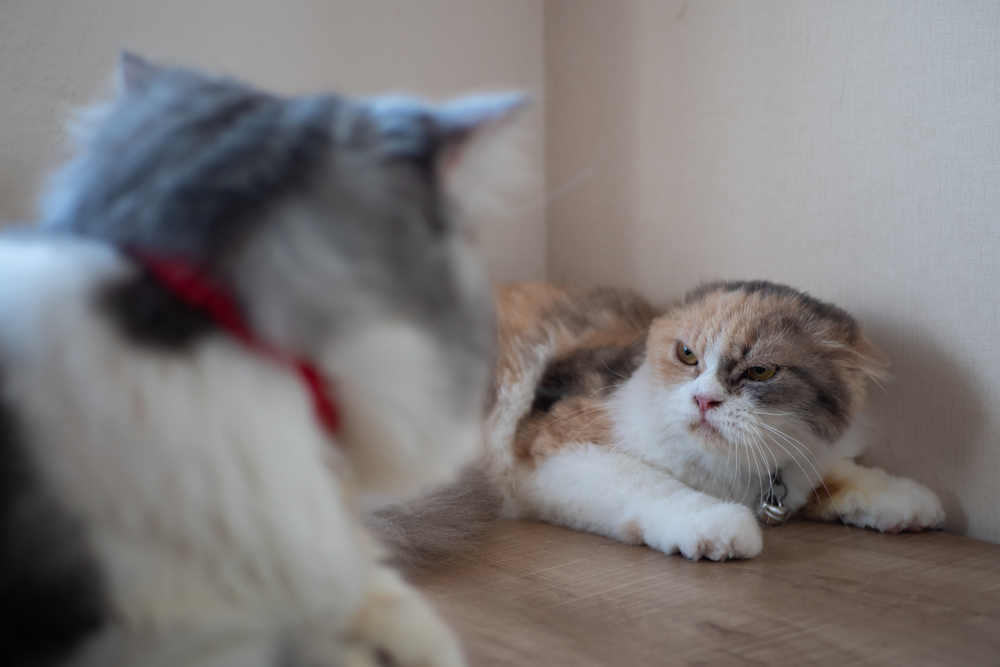
4. They’re protecting kittens (and other precious things)
If a cat has recently given birth, this could be a time of frequent hissing. The mother cat may not even let trusted humans touch her kittens until she’s sure they’ll be safe. Aggressive action may follow the hiss if the cat is unfamiliar with humans.
House cats may also feel protective of a new toy or a treat. Since house cats don’t get as much stimulation as cats in the wild, a favorite toy could be a trigger if the attachment is strong enough.
5. They’re fearful
If a cat is afraid of something, a hiss could be less about aggression or protectiveness and more about feelings of intimidation. Again, cats want to avoid conflict in most cases. Hissing could help warn away the frightening party (or new person or item) until the cat feels comfortable again.
If you’ve moved homes, your cat may feel stressed about being in an unfamiliar environment. If your cat is timid, anything new could cause hissing. One way to help alleviate this behavior is to offer small treats, gentle affection, and playtime to help distract your cat and teach it that not everything is a threat.
6. You’re just bothering them
Cats aren’t the people pleasers dogs are. If you’re trying to get your cat to do something (like sit in your lap), and your cat doesn’t want to … hiss. If this happens to you, it’s not a big deal. It may be time to leave your cat alone for a few hours or get out of the chair it’s trying to occupy.
If you have small children, you might need to supervise their time together to ensure your children treat your cat well. Small children often don’t know or understand boundaries with animals, and cats may hiss as a warning. Your cat may even preemptively hiss the moment your child walks into the room.
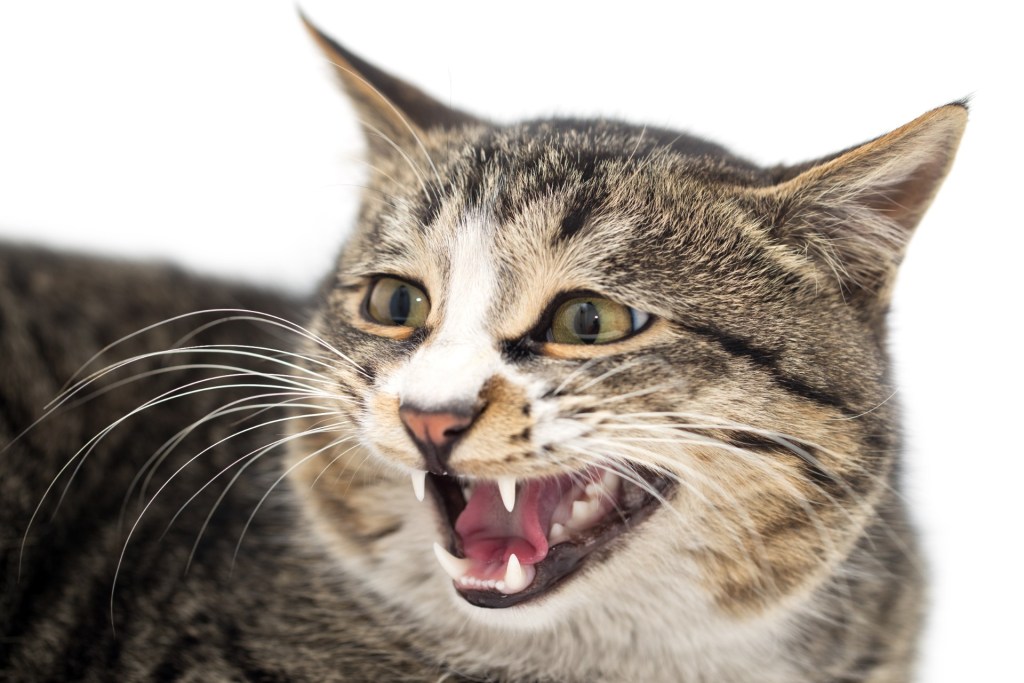
What should you do when a cat hisses?
When your cat hisses, it’s important to recognize what’s prompting the behavior and then take appropriate steps to make your cat feel comfortable. If you’ve cornered your cat or surprised her with a pat, chances are she’s hissing out of fear.
If you have a new cat, she might hiss when you approach because she feels threatened. It takes time for cats to settle in and get to know you and your family, so it’s important to get everyone on board in this situation. Give your new cat a place that’s all her own, such as a room where no pets or other family members are allowed.
How you react when a cat hisses is very important. Here are the steps you should take:
- Back up and give them space. Make sure that everyone else in your family does the same.
- Determine the cause. Assess their behavior and try to figure out what’s causing their hissing. Once you do that, you can work to find a solution.
- Provide a safe spot. Ensure that there are places in your home where your cat can hide for a little peace and quiet. (We all need that sometimes, right?)

Final thoughts on hissing
Hissing may not be a big deal. Consider what’s happening in your cat’s life, and remove any issues or problems that might be causing discomfort. It could be a simple matter of putting a toy back.
If you can’t otherwise explain why your cat is hissing, then it’s best to bring her to the vet for a checkup. Your vet might find a source of pain, such as an infection or arthritis, that has developed without your knowledge, especially if you have a senior cat who has different health needs. Treating the pain should make your cat comfortable again, and the unusual hissing behavior should stop.
